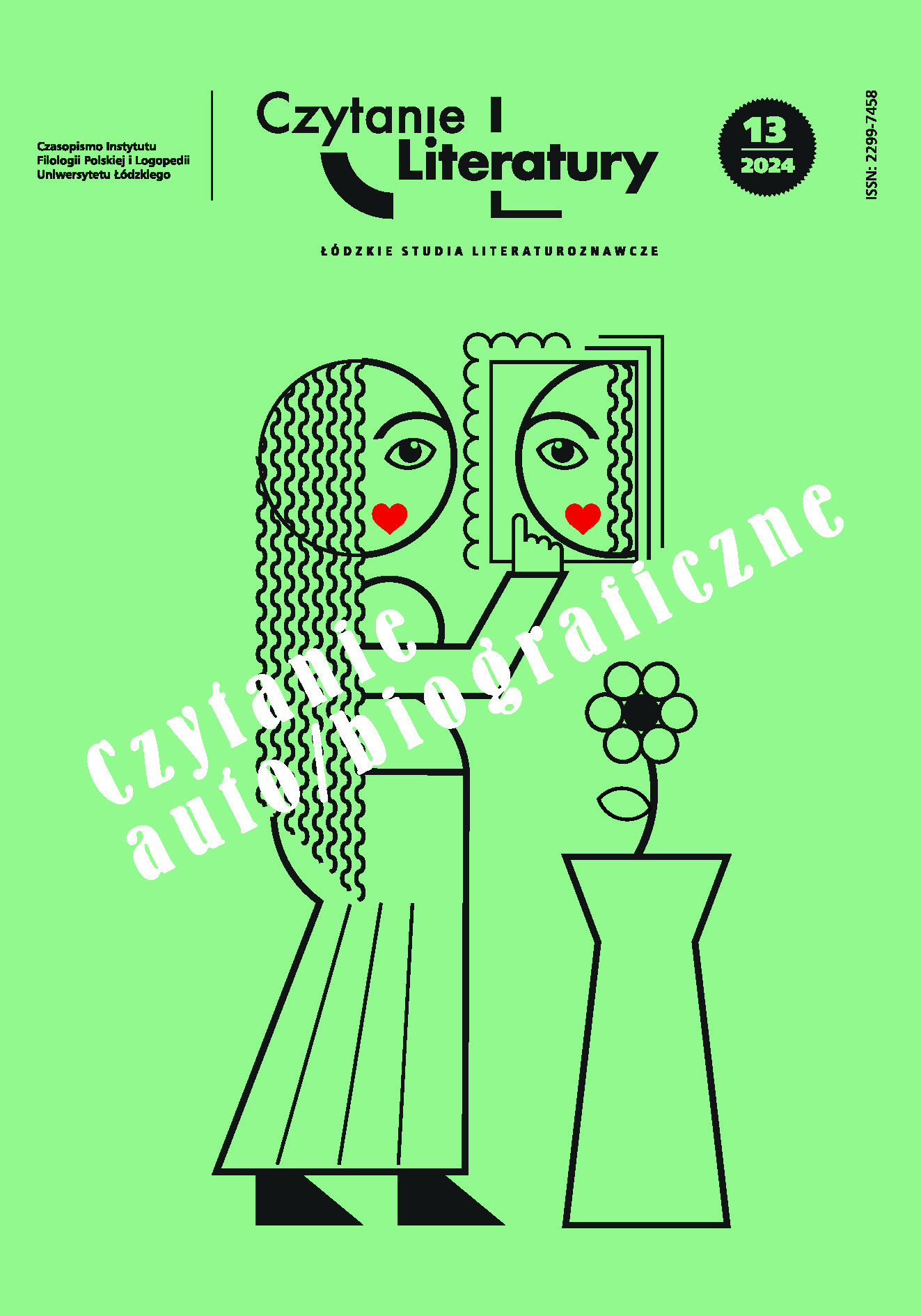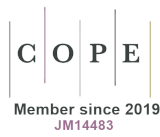‘As Though It Were A Sacred Relic’: The Troubled Holocaust Poetry of Julian Tuwim
DOI:
https://doi.org/10.18778/2299-7458.13.16Słowa kluczowe:
Julian Tuwim, Polish-Jewish poetry, Holocaust poetry, poetry, identity, hybridityAbstrakt
The Polish-Jewish poet Julian Tuwim (1894–1953) was among the most widely read – and denounced! – writers of interwar Poland. Described as ‘a virtuoso of language’ in his beloved Polish mother tongue, Tuwim’s literary range was remarkable and varied. Most introspectively, his poetry expressed a simultaneous embrace and ambivalence, towards the dual identities he fiercely proclaimed: both Polish and Jewish. His poetry combined, stretched and challenged identities in unprecedented ways. This writing earned Tuwim a wide audience, along with many critics. Living in exile during the Second World War, Tuwim was among the first major European literary figures to write Holocaust poetry as genocide was being perpetrated. His searing Holocaust poems convey a longing for Poland, for a better Poland, and a solidarity of suffering with his brethren Jews. To the end, Julian Tuwim was a powerful, troubled Polish-Jewish literary voice. He was ever hunting for the words that could change his world and ours.
Pobrania
Bibliografia
Aberbach, David. The European Jews, Patriotism and the Liberal State, 1789–1939. New York: Routledge, 2013.
Google Scholar
DOI: https://doi.org/10.4324/9780203079201
Berg, Mary. The Diary of Mary Berg: Growing Up in the Warsaw Ghetto. New York: Oneworld, 2007.
Google Scholar
Bill, Stanley. “The Splintering of a Myth: Polish Romantic Ideology,” in Tamara Trojanowska et al. ed., Being Poland: A New History of Polish Literature and Culture since 1918. Toronto: University of Toronto Press, 2018.
Google Scholar
Cohen, Nathan. “Reading Polish among Young Jewish People,” POLIN: Studies in Polish Jewry, vol. 28, 2016.
Google Scholar
DOI: https://doi.org/10.3828/polin.2016.28.173
Dembowski, Peter. “Julian Tuwim, 1894-1953,” Canadian Slavonic Papers, vol. 1, 1956.
Google Scholar
DOI: https://doi.org/10.1080/00085006.1956.11417813
Glinski, Mikolaj. “Tuwim’s Tensome Faces,” http://archive.is/MDIxa (accessed 17 September 2016).
Google Scholar
Gröezinger, Elvira. “Tuwim, Julian,” In Sorrel Kerbel (ed.), The Routledge Encyclopedia of Jewish Writers of the Twentieth Century. London: Routledge, 2003.
Google Scholar
Kharim, Alexander. “In the Presence of Julian Tuwim,” Haaretz, 14 October 1949.
Google Scholar
Kryński, Magnus. “Politics and Poetry: The Case of Julian Tuwim,” Polish Review, vol. XVIII, no. 4, 1973.
Google Scholar
Low, Ryszard. Hebrajska Obecność Juliana Tuwima. Tel Aviv: Hasefer, 1993.
Google Scholar
Michilic, Joanna. Poland’s Threatening Other. Lincoln: University of Nebraska Press, 2006.
Google Scholar
Matywiecki, Piotr. “Julian Tuwim’s Jewish Theatre,” POLIN: Studies in Polish Jewry, vol. 28, 2016.
Google Scholar
DOI: https://doi.org/10.3828/polin.2016.28.391
Matuszewski, Ryszard. Contemporary Polish Writers. Warsaw: Polonia Publishing House, 1959.
Google Scholar
Miłosz, Czesław. The History of Polish Literature. London: Macmillan, 1969.
Google Scholar
Person, Katarzyna. Assimilated Jews in the Warsaw Ghetto: 1940–1943. Syracuse: University of Syracuse Press, 2014.
Google Scholar
Polonsky, Antony. “Julian Tuwim, the Polish Heine.” American Association for Polish-Jewish Studies online (n.d.). http://www.aapjstudies.org/index.php?id=115 (accessed 1 November 2016).
Google Scholar
Polonsky, Antony. The Jews in Poland and Russia: A Short History. Oxford: The Litttman Library of Jewish Civilization, 2013.
Google Scholar
DOI: https://doi.org/10.3828/liverpool/9781906764395.001.0001
Prokop-Janiec, Eugenia. Polish-Jewish Literature in the Interwar Years. Syracuse: University of Syracuse Press, 2003.
Google Scholar
Ratajczyk, Józef. Julian Tuwim. Poznań: Dom Wydawniczy REBIS, 1995.
Google Scholar
Shmeruk, Chone. “Preface,” in Julian Tuwim, We, Polish Jews. Jerusalem: The Magnes Press, 1984.
Google Scholar
Szwambaum, Halina. “Letters from the Warsaw Ghetto.” CBC (Canadian Broadcasting Corporation) News. http://www.cbc.ca/news/world/letters-from-the-warsaw-ghetto-1.791933 (accessed 18 March 2018).
Google Scholar
Szwarcman-Czarnota, Bella. “Jewish Jews on Tuwim” in POLIN: Studies in Polish Jewry, vol. 28, 2016.
Google Scholar
DOI: https://doi.org/10.3828/polin.2016.28.409
Sobelman, Michał. “Zionists and ‘Polish Jews’. Palestinian Reception of We, Polish Jews,” Acta Universitatis Lodziensis, Folio Litteraria Polonica 6(36), 2016.
Google Scholar
DOI: https://doi.org/10.18778/1505-9057.36.07
Trojanowska, Tamara et al. ed. Being Poland: A New History of Polish Literature and Culture since 1918. Toronto: University of Toronto Press, 2018.
Google Scholar
DOI: https://doi.org/10.3138/9781442622517
Tuwim, Julian. Tam zostałem. Wspomnienia młodości. Warsaw: Czytelnik, 2003.
Google Scholar
Tuwim, Julian. We, Polish Jews, ed. Chone Shmeruk. Jerusalem: The Magnes Press, 1984.
Google Scholar
Tuwim, Julian. The Dancing Socrates and Other Poems, selected and trans. Adam Gillon. New York: Twayne Publishers, 1968.
Google Scholar
Urbanek, Mariusz. Tuwim: Wylękniony Bluźnierca, Warsaw: ISKRY, 2013.
Google Scholar
Pobrania
Opublikowane
Jak cytować
Numer
Dział
Licencja

Utwór dostępny jest na licencji Creative Commons Uznanie autorstwa – Użycie niekomercyjne – Bez utworów zależnych 4.0 Międzynarodowe.










